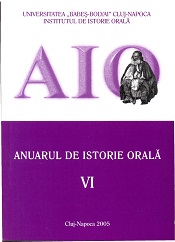

Keywords: galios politika; realizmas; tarptautinių santykių teorija; informacinė revoliucija; informacinė visuomenė; informacijos amžius; power politics; realism; international relations theory; information revolution; information society; information age
Realism has been the dominant international relations theory for nearly seven decades focusing almost exclusively on power politics among states, but throughout these years the mankind has passed major technological, societal and economic transitions that also had their impact on the political sphere, including international politics. In public discourse these transitions are usually associatied with the terms “information society” or “global information revolution”, whereas political scientists from their part started to use such concepts as “informational (or soft) power”, “information warfare”, or “information security”, refering to a qualitative change in the nature of these traditional variables in political analysis. This article focuses on power, the main variable in the (neo)realist perspective, thus revising the relevance of the theory itself in the context of the information revolution of the 21st century. Although national power resources and consequently international power politics have recently been transforming and taking new forms, mostly involving soft power instruments and the modernization of national economies and militaries, the fundamental (neo)realist assumptions about the competitive nature of international politics are still valid in the information age. Realizmo teorinė tradicija tarptautiniuose santykiuose vyrauja jau daugiau nei 70 metų, tačiau per šį laiką žmonija išgyveno nemažai esminių technologinių ir jų sąlygotų ekonominių bei socialinių transformacijų, akademinėje literatūroje dažniausiai siejamų su „pasaulinės informacinės revoliucijos“ ir „informacinės visuomenės“ terminais. Politologai savo ruožtu ėmė domėtis, kaip ši revoliucija paveikė (ar gali ateityje paveikti) politinius procesus, tarp jų ir tarptautinę politiką. Jau XX a. pabaigoje pastarosios srities tyrimuose buvo pradėtos naudoti „informacinio karo“, „informacinio saugumo“ ar „minkštosios galios“, paremtos informacijos kontrole globalioje informacinėje erdvėje, sąvokos, tačiau šiame straipsnyje gilinamasi tik į galios, kaip pamatinio realistų tyrimų objekto, turinį ir jos transformaciją XXI a. Taip tikrinamas ir pačios (neo)realizmo teorijos relevantiškumas pasaulinės informacinės revoliucijos kontekste. Nors valstybės galios resursai ir, atitinkamai, tarptautinė galios politika pastaraisiais metais sparčiai keičiasi ir įgauna naujų formų, visų pirma sietina su minkštosios galios įsitvirtinimu ir šiuolaikinių technologijų diegimu ekonomikoje bei karybos sferoje, tačiau pati fundamentaliausia realizmo prielaida apie konkurencinę tarptautinės politikos prigimtį išlieka teisinga ir informacijos amžiuje.
More...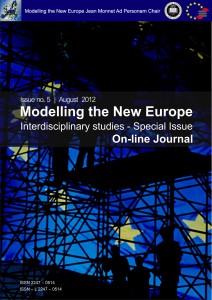
Keywords: DIASPORA; ANTICOMMUNISM; CULTURAL FORUMS; ROMANIAN EXILE;
While the existence of a powerful core of the Romanian diaspora in France not only before, but also-and especially-during the communist period is undeniable, the nature and coherence of its message were largely reliant on the quality of the means of expression created or used by this dynamic and heterogeneous intellectual segment. It is thus interesting to observe the effectiveness and complexity of the cultural instruments these elites resorted to during their years of exile, also given the significant number of Romanian artists that had sought refuge in the resourceful intellectual space of the French Republic. Representatives of numerous cultural and artistic branches found imaginative ways of portraying either criticism of Romanian communism, or perspectives regarding a much-needed reorientation of their country of origin, one that may be keeping with the integration process initiated at an institutional level in the western part of the continent. In particular, it is to be noticed the activity of the so-called Maison Roumaine from Paris, which became a gathering point of some of the most prominent voices of the Romanian exile, before the fall of Ceausescu's regime. The cultural output of this society became a genuine landmark for the entire diaspora and provided it with exceptional impetus, amid countless political controversies germane to the natre of such forms.
More...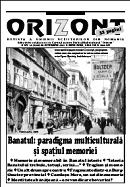
Keywords: Third Europe Foundation; cultural projects; pertinence; provincialism; Central Europeanness; Banat; centre vs. margin; identity; fashionable; myth; nationalism; identity-oriented discourse; intellectual milieu; ethnic identity; identity claims; terminolo
The dialogue between professor H.R.Patapievici and the teachers and students of the Timisoara Open College is a follow-up to a series of seminars and debates which took place on the occasion of various visits paid by personalities of the cultural and scientific milieu - in Romania and abroad- , to the Third Europe Foundation. The transcript features a discussion focusing on the legitimity of the claims to a distinct, Central European, identity of the Banat. The starting point is an article signed by H.R.Patapievici, in which he contested the cultural accuracy of the Third Europe project in the current Romania context. The second part of the discussion with H.R. Patapievici features strong interventions from professors Cornel Ungureanu and Mircea Mihăieş. The talks concentrate on the strenghtening of the identity-focused discourse after 1990 and on various approaches to the question of regional identity in Romania. Mr. Patapievici sees fragile identities as representative for modernity, while Ungureanu emphasises the importance of the existence of a cultural project in the region in order help the creation of a competitive body of specialists in the field of Central European culture.
More...Keywords: tourism; tourist destination; foreign tourists; Transylvania; Romania
The present paper aims to present and discuss the development of Romania’s and Transylvania’s tourism activity beginning with 1990. The paper mainly focuses on determining the number of foreign visitors who are interested in Transylvania as a tourist destination. This analysis is part of a larger project, that of branding this region. The intent is to use the established number of Transylvania’s foreign visitors for determining the size of a sample that shall be investigated in a future research concerning the manner how foreign visitors perceive the region as an international destination. A short analysis of the region’s tourism capacity is also going to be presented.
More...Keywords: performance; Carnal art; human body; Orlan; experience
More...Keywords: intercultural; didactics; stereotype; comic book; plural identity.
This article describes some of the possibilities to work interculturally inan academic course of Intercultural Didactics intended for future language teachers as wellas the results obtained following the didactic approach put in place. After a first part devotedto the concept of interculturality and its didactic meanings, the article presents in detail thestudents’ answers to two types of instructions: the identification of intercultural key words inreadings of specialty and the analysis of stereotypes in comics. The article ends bypresenting some elements of intercultural negotiation between Romanian and Frenchstudents during exchanges on the setting up of a multilingual didactic sequence.
More...Keywords: community privacy; cultural autonomy; Hungarian community; normative multiculturalism; territorial autonomy;
The first part of the study looks at the historical context of the symbolic and territorial competition between Romanians and Hungarians, dwelling on the issue of Transylvania and the competition for historical legitimacy. It bridges, against this background, the question of Hungarian identity to a concept developed elsewhere as a part of a national minorities doctrine: that of community privacy. Territorial autonomy, currently invoked in several Hungarian projects, represents one possible answer to the need for the community privacy of Hungarians in Romania. Another manifestation of community privacy is cultural autonomy. The study then discusses the provisions of the current draft law on the statute of national minorities in Romania and shows that it has reduced cultural autonomy to its political dimension. This form of reductionism, together with the role granted to organizations of citizens belonging to the national minorities, harms the internal democracy of minority communities. Given the current political and social context, in order to be successful in their promotion of autonomy the relevant actors in the Hungarian community must overcome their differences and agree on a set of minimal goals as an expression of their identity as a community.
More...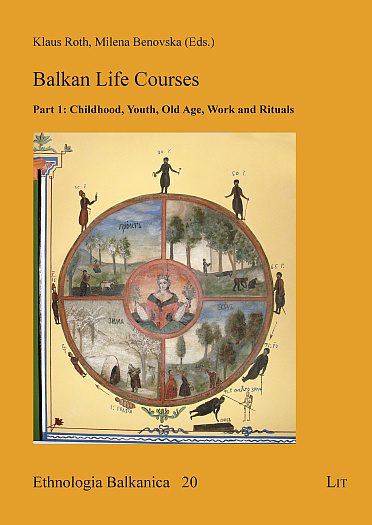
Keywords: Romania; Călărași; Vrancea; colindat custom; cultural heritage;
The “colindat” custom, which is still active in many Romanian villages, is performed by groups of young men who go from house to house during Christmas Eve (from the 24th to the 25th of December) each year, singing ritual songs and greeting their fellow villagers. Depending on local tradition, young men can wear spectacular folk costumes and can also perform dances as part of the Christmas “colindat”. The texts of the ritual songs (colinde) consist of a mixture of widely varied folk and Christian motifs set against a pattern of oral poetics. “Carols” for the dead can be placed in the group of “colinde” addressed to different members of traditional families (householders, young unmarried men or women, newlywed couples, etc.). During two field research trips in the south-eastern part of Romania (in villages in Călărași and Vrancea Counties) conducted in 2010 and 2012, I collected data on current “carols” for the dead and the ritual gestures that are associated with performing this type of folk song. Although the practice of performing such “colinde” is dissolving (against a background of deeply changing rural civilization), it can still be documented (in and out of context) in rituals, “colinde” notebooks, and oral accounts that give evidence of the inherited community structure that revolves around the extended family in traditional Eastern-European villages.
More...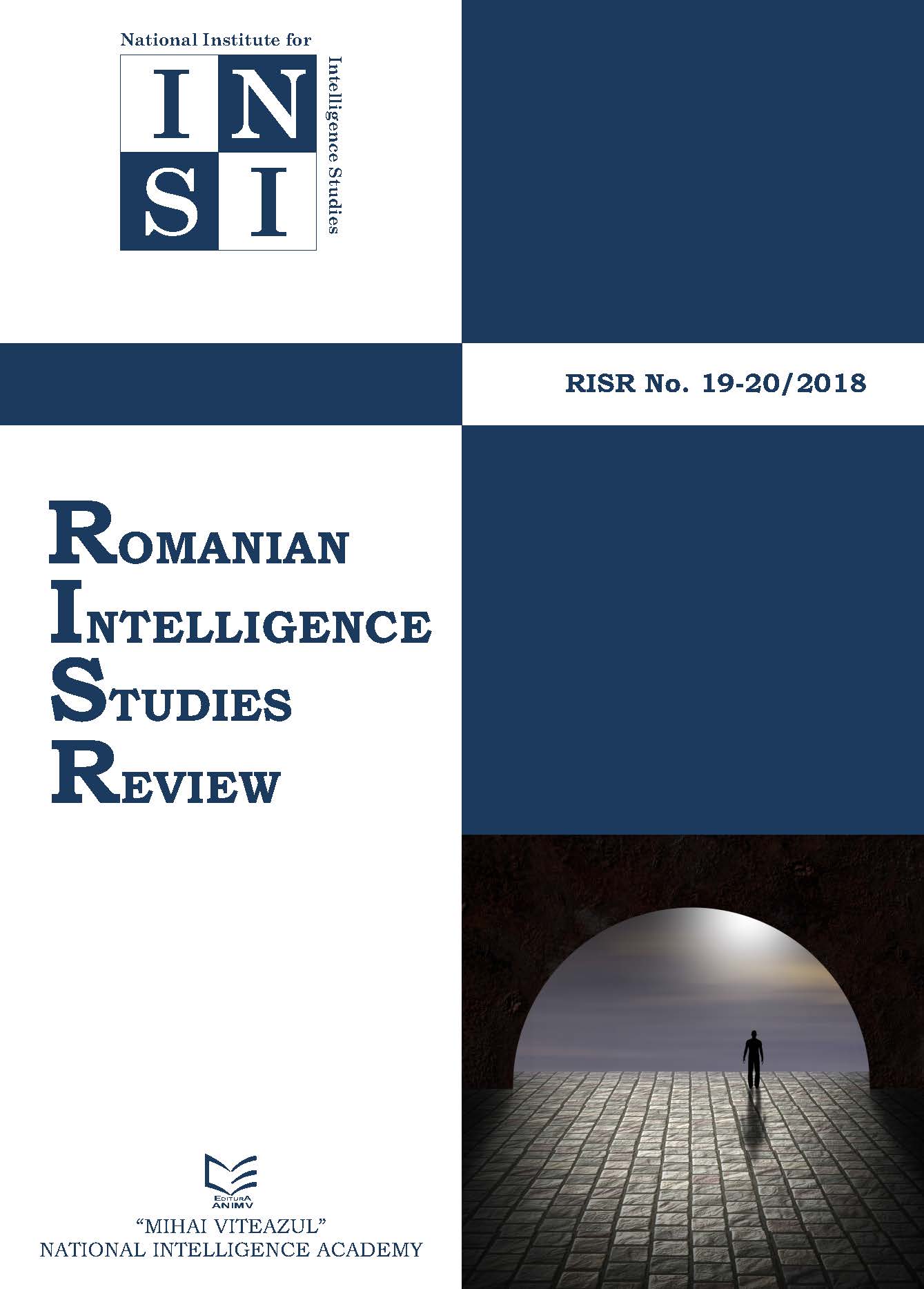
Keywords: Influence; Social media; Cyber-influence; Intelligence; Counter-Intelligence;
The paper describes an intelligence-based approach to identify, understand and counter influence operations and campaigns that are sponsored, directed, or conducted by State or non-state actors on/through social media platforms. It examines the extent to which the collection and analysis of social media data and further contextual information can provide actionable insight into influence-aimed activities perpetrated by both State and non-state actors. It also discusses how to employ such insight for tailoring effective counter-measures at the operational, tactical and strategic levels. The paper starts by conceptually framing social media platforms and services as tools for exercising influence – or cyber-influence/persuasion – over a target. For this purpose, it examines the notions of “influence operations” and/or “campaigns”, presents their featuring elements, and shortly discusses if, how and to what extent they have changed or are changing due to the emergence of the cyber-space and new technological platforms. The study benefits from the review of the recently available literature dedicated to the employment of social media for influence purposes as well as the examination of few selected and documented case studies. Then the paper examines the crafting of intelligence on influence operations form social media data and metadata, in particular on actors engaging in these operations, their employed capabilities, modus operandi, intended goals as well as the operational constraints they face. It outlines the collection and analytical techniques serving the purpose of producing social media intelligence, presents their general advantages and limits, and highlights the challenge of enriching the knowledge on influence operations with further contextual information and intelligence. The paper concludes by proposing recommendations on how to implement the intelligence-based approach to countering influence operations or campaigns over social media in an effective manner. These include the acquisition of the necessary capabilities (human, technological, and organisational) to monitor and analyse social media information. They also include the definition of a framework to better integrate intelligence from social media in to a consistent all-source intelligence system.
More...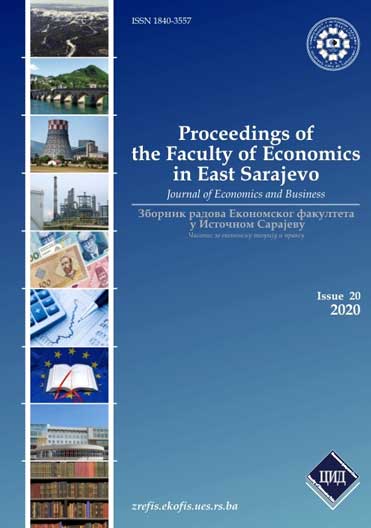
Keywords: Satoshi Nakamoto; blockchain; Warren Buffett; tulipmania; speculative bubbles; decentra-lization; altcoins; portfolio diversification; volatility; future of finance;
Although the world of finance has been existing for only ten years, the fact is that Bitcoin (BTC) has unstoppably triggered significant changes in the global financial market and has opened up numerous controversies. There is debate over whether BTC could become a new global currency that will not be subject to inflation or central bank influence. At the same time, decentralization and lack of regulations, which were considered a major asset, were characterized as the main cause of the high volatility of BTC, whose price depends solely on the supply-demand ratio. Like every time, when it comes to revolutionary technologies and issues of their impact on the world of finance, the public is divided, this time into BTC pessimists and BTC optimists. The former claim that BTC is broken and will suffer an inevitable and spectacular collapse, calling it "rat poison". However, optimists are of the view that the BTC era is just beginning and that it will change its payment method, economy and even politics around the world, and they consider it a new asset class worth investing in. In the midst of all these discussions around BTC, there seems to be no topic that is more media-covered, but less discovered. The aim of this paper is to come to the truth by analyzing recent scientific papers dealing with this issue, that is, to try to answer the research question: is BTC a "rat poison" or a new asset class worth investing in?
More...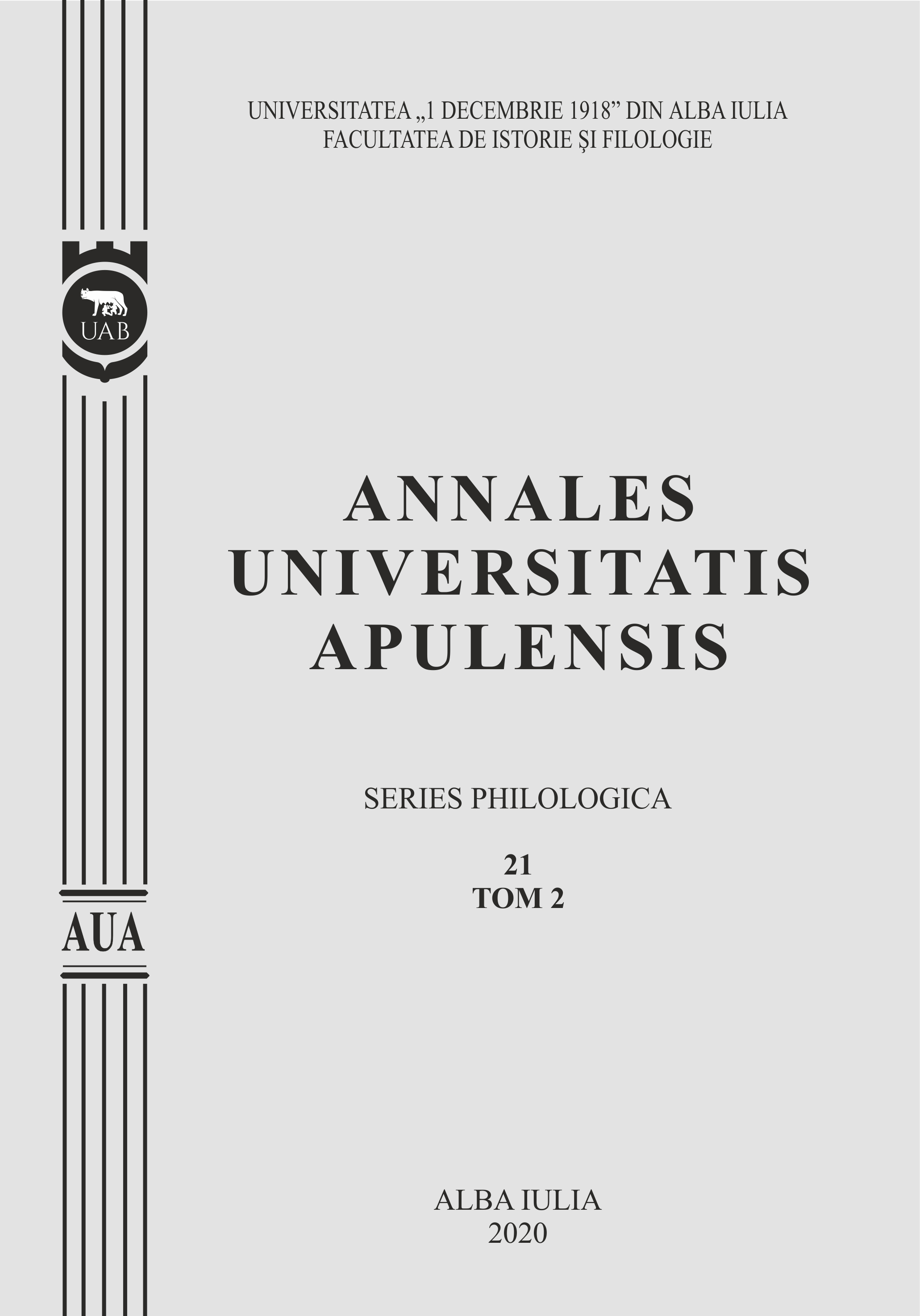
Keywords: educational partnership; cooperation; involvement; responsibility;
The partnership between school, family and community is an important contemporary aspect, highlighted in many national and international educational policy documents as well as in pedagogical research. The preschool is the main educational partner of the family and the new Curriculum for early education underlines the importance of the partnership with the family, especially the importance of the involvement of the family in the decisions of the children’s education and the presence of the parents in the life of the preschool in all its manifestations. The contemporary pedagogy develops a new concept perceived as principle – the educational partnership as extension of the principle of the unity of the educational needs; this aspect requires communion in the field of the educational objectives. There is a series of acts and methodological norms for the real implementation of the educational partnership to an international level (UNICEF line of action for Early Childhood Development), and national correlations (as dimension of the educational reform). They tend to become a central concept for the flexible and open curricular approach of the educational issues (RENINCO White Book, UNICEF). The present paper highlights the formative value of the partnership with the family, using examples of good practice.
More...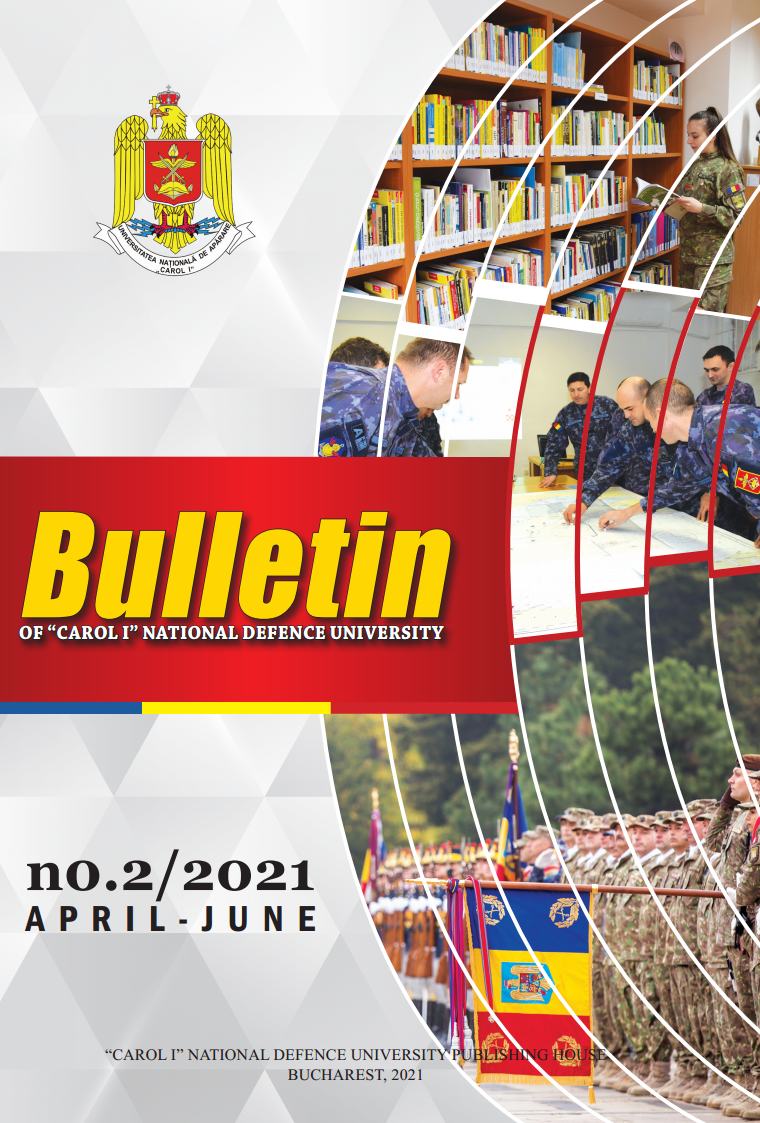
Keywords: Russian-Ukrainian war; Crimea; energy weapon; Black Sea;
The present paper analyzes the projection of Russia’s economic and military power in the Black Sea region, seen both in terms of its huge resources and as a way of projecting military power in the coastal States and the Eastern Mediterranean. The energy perspective is important in Russia’s geopolitics, and the Black Sea region is perceived by it as the point of confluence of several globalist interests, in which Russia desires not only to be a mediator, but the decisive pivot to impose regional policy. Creating an energy dependency of the West on Russian resources represents a well-defined political goal in the Russian strategy. Russian gas is thus becoming a Trojan horse, by which Russia can influence European policies, this energy instrument being complemented by other powerful instruments aimed at undermining or diminishing NATO’s role in Eastern Europe. Russian interests are concentrating firstly on the desire to maintain different levels of political and economic influence in each coastal State, to maintain the Black Sea under control for oil or gas exports and other maritime transport through Novorossiysk port as well as preventing a security deficit toward NATO that could threaten the South-West flank of Kremlin. In pursuing these interests, Russia’s strategy is based on the use of political, diplomatic, information and economic instruments, which are supported by an increasingly credible military capacity, analyzed and explained in this paper.
More...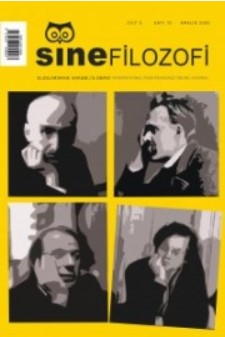
Keywords: Pasolini; documentary; landscape; spatio-temporal; territorial assemblage; diagram;
Hardly known that Pier Paolo Pasolini has created a landscape trilogy through the location-hunting documentaries in his oeuvre. The first of these works is also the one that comprises the spine of this essay, Sopralluoghi in Palestina (Locations in Palestine, 1963), the second one is Appunti per un film sull’India (Notes for a Film on India, 1968), and finally, Appunti per un’Orestiade Africana (Notes for an African Oresteia, 1969/70). The use of historically and culturally layered landscapes from varying perspectives makes his documentaries a “territorial assemblage” in which any number of things or pieces of things has gathered. Following the footprints of Pier Paolo Pasolini, this article aims to explore the film, namely Sopralluoghi in Palestina (Locations in Palestine, 1963) and to present different articulation of space, landscape, territory and place. Particularly, the narrative information, pure observation and his self-experience of landscape are spliced together in mythical as well as historical shots which have been incandescently defined by his poetic realism. Film, indeed, not only does enable to mediate some Deleuzoguattarian concepts penetrating from philosophy to cinema, but also does open new paths for “thinking differently” on the complexity of space. This article, by delving into the real-time shots of the film will problematize the spatial-temporal dimensions are involved in the cartography formed by heterogeneous forces or/and multiplicities defined by “zones of indiscernibility” in the landscape. In this way, I target to reveal its diagrammatic formation which provide the viewer thinking through words and images, nature and culture, faces and surfaces.
More...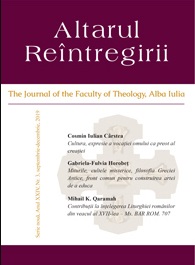
Keywords: Orthodox diaspora; mixed marriages; jurisdiction-territory; ethnophyletism; eikonomia; akribeia
The reasons why a diaspora appears are similar throughout human history. People are ontologically the same, and the social, cultural, and religious context in which these great migrations take place is often similar. We can identify distinct elements and mutual lessons that help us to understand these events much better, to prevent them by noticing the causes in time, and to learn from these lessons of past and present history. The present study focuses, on the one hand, on the effects that the phenomenon of migration has had on the Orthodox diaspora, especially given the religious and social impact of life that today's Orthodox have among foreigners, being far from their national, religious and cultural center. The diaspora is essentially experiencing a revitalization of the faith in a foreign country and among people professing foreign beliefs. Thus, in the Church, all nationalist nostalgia should be overcome, because the Church is a foreshadowing of the Kingdom, where there is neither Greek nor Jew [...] because we are all one in Christ Jesus (Gal 3:28). Thus, wherever we live, we are always in the ‟diaspora”, even within the boundaries drawn by our forerunners, in the land they inhabited. On the other hand, the present research also deals with the issue of mixed marriages. The issue urged the Orthodox to look beyond the canonical perspective of impediments to marriage and to focus on more urgent issues that require attention, namely the liturgical, pastoral and ecumenical aspects of mixed marriages. However, given the ethnic and cultural diversity in which the Orthodox Church carries out its mission in the world today, we should not be surprised that each Orthodox Church has applied and continues to apply the principles of canonical eikonomia and akribeia to mixed marriages in a non-unitary manner.
More...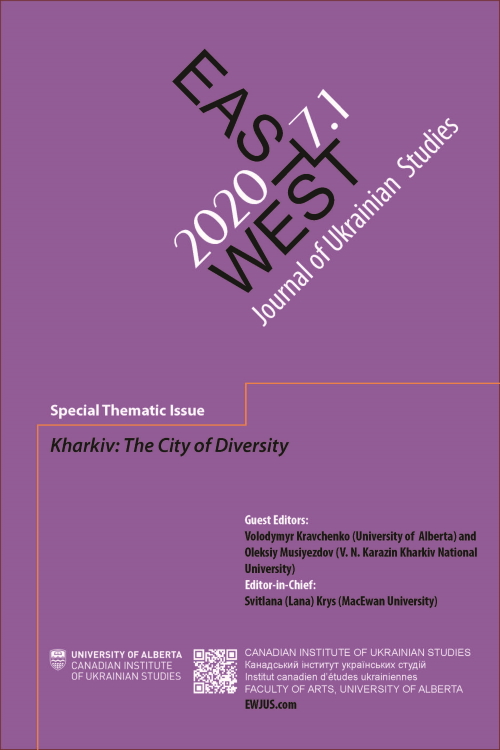
Keywords: linguistic ideologies; language maintenance and shift; pride and profit; local and global; Kharkiv; Ukraine;
This paper explores the linguistic diversity of the city of Kharkiv, focusing on the language ideologies and practices of Russian-speaking Kharkivites in the wake of the Russo-Ukrainian military conflict of 2014. This conflict polarized Ukrainian Russophones into competing ideological positions for or against Russia and gave fresh vigour to the long-existing linguistic debate in Ukraine, which was a result of the Russian government’s manipulations of the Ukrainian language situation. The political convictions of Russian-speaking Kharkivites affect their linguistic behaviour, motivating them to attempt to switch to Ukrainian, to advocate bi- or multilingualism, or to demonstratively use only Russian. A field study that I carried out in Kharkiv in the summer of 2018 examined correlations and discrepancies between Kharkivites’ linguistic ideologies and their real-life language practices, focusing on the interaction between two factors: the discourse of “pride” in speaking a particular language, which is anchored in a speaker’s interpretations of the role of language in a nation, and the discourse of “profit,” which is based on a speaker’s expectation of economic benefits related to mastering a certain language. The study results reveal the vacillations of this Russian-speaking community between support for the monolingual ideology of the nation-state and the globalizing concept of multilingualism, demonstrating an interplay between discourses of “pride” and “profit” and the influence of local and global forces.
More...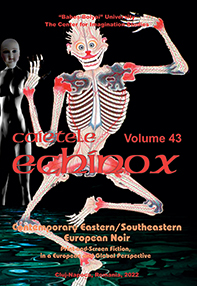
Keywords: Eastern Noir; Western Eastern Noir; Translation; French Readership; Globalization;
Based on a corpus of Eastern and Western crime novels dealing with crime in the former Eastern Bloc countries, three issues are examined: the globalization of the crime fiction market through French translation and a few of its deterritorializing consequences for writers and readers; the a priori pragmatic- semantic configurations informing the act of reading (culture of fiction, culture of the author and culture of the reader); the symbolic displacement of the disappeared Iron Curtain towards two types of thematic border: one by excess (the perpetuated over-border) and the other by default (the checkpoint and the confines).
More...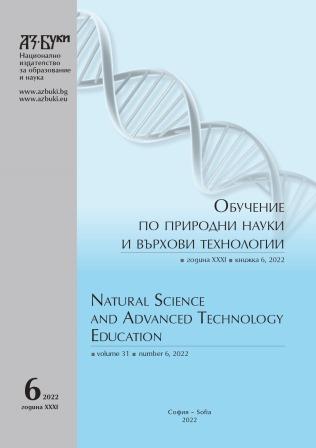
Keywords: Chemistry curriculum; Difficult chemistry topics; Pedagogical content knowledge
Teachers’ knowledge of students’ difficulties is a major component of pedagogical content knowledge (PCK) and a key element for effective instruction. The current research aims to identify teachers’ PCK for: difficult topics in the chemistry curriculum; reasons for student difficulty; students’ interest towards difficult topics and the skills needed to be successful in chemistry. For this purpose a questionnaire survey was conducted among 20 chemistry teachers from different schools in Bulgaria. Participating teachers consider Chemical equilibrium, Chemical calculations and Organic chemistry as being most difficult. Metals, nonmetals and their compounds, Redox reactions and Atomic structure on the other hand are viewed as easier and more interesting. Understanding scientific concepts, principles and laws, self-studying and logical thinking are the skills students need to be successful in chemistry. Teachers believe student difficulties are due to: the abstract nature of chemistry; the fact that learning chemistry requires effort, regular study and prior mathematical knowledge; insufficient instructional time and lack of interest towards the subject.
More...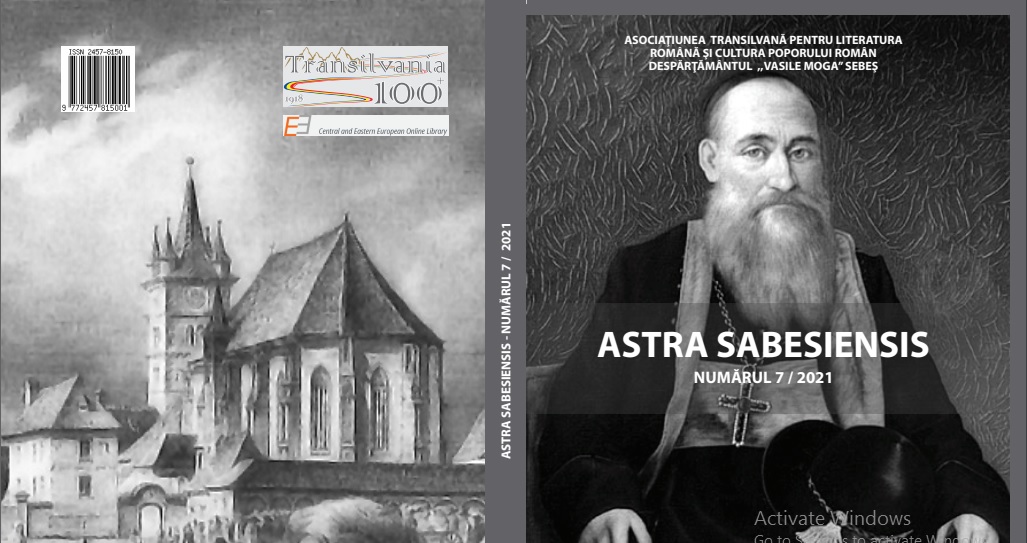
Keywords: greek-catholic diocese; economical resources; Petru Pavel Aaron; Inochentie Micu-Klein;
Because of the forced departure of bishop Inochentie Micu-Klein to Rome and the death of the vicar, archpriest Nicolae of Biia, Petru Pavel Aaron become the general vicar of the diocese. He had to deal with both the administration of the diocese and the problem caused by the arrival of the monk Visarion Sarai. From the financial point of view, the situation of the diocese was far from ideal, the disturbances brought by Visarion’s visit in the spring of 1744 led to a revolt among the archpriestship and priests. Bishop Klein’s rather difficult situation in Rome and his repeated complaints lead to increased evidence in documents of this tax, called the „census catedratici”. All of these records on this tax are the result of vicar Aaron’s request to collect the „census catedratici”, in order to support the exiled bishop. The documents include data of the collected money, and also about those who had the task of collecting those founds. Moreover, in the documents it is also highlighted the real situation of the archpriestships after the departure of the bishop from the Principality. Bishop Klein’s influence on financial administration was especially evident in the action of the archpriests, who were quite influential in their first part of his exile. Therefore, this paper aims to show firstly how the vicar succeeded to manage the situation of collecting the money and secondly, how he used those founds for administration. Those aspects show the vicar’s abilities to administrate a diocese under the pressure of social and political events that took place inside the diocese.
More...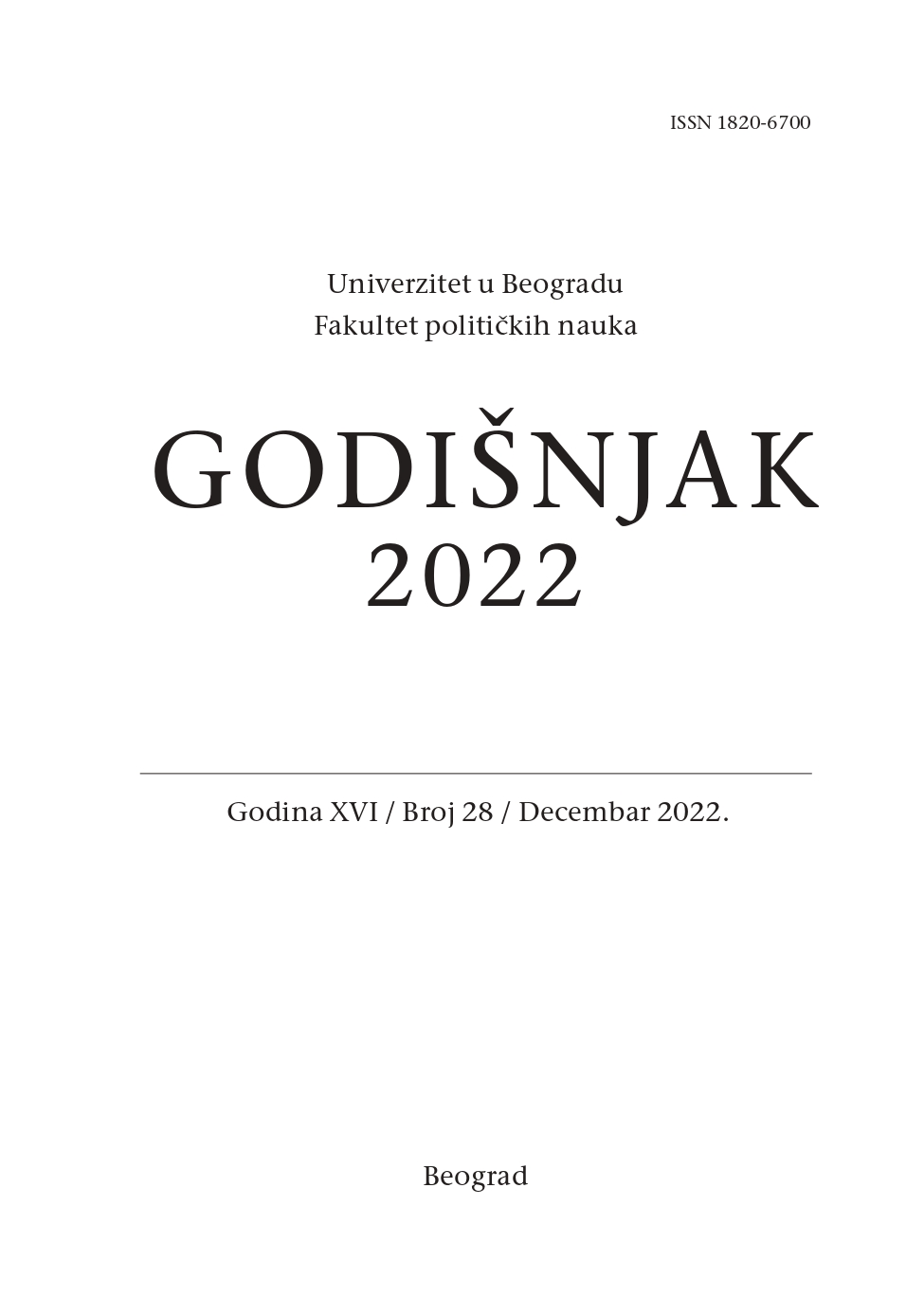
Keywords: family support; skills of professionals; Delphi study
Family support professional skills is a broad concept that includes a variety of knowledge, attitudes, traits and technical abilities. In an attempt to catalog family support professional skills, a group of family support experts, researchers and stakeholders gathered around the COST network CA18123 – The European Family Support Network A bottom-up, evidence-based and multidisciplinary approach. In order to generate existing knowledge from the literature and achieve standardization of skills in the field of family support, a consensus building design was created among experts, professors, decision makers and practitioners in the field of family support. The findings suggest that the consensus building workshop had similar results to the findings of the systematic literature review in which skills were divided into: attitudes and characteristics of professionals, specific knowledge and technical skills. Findings from the workshop provided clear information for the structure of the Delphi study. The text discusses different models of consensus building, their advantages and disadvantages, as well as arguments for choosing a Delphi study. Basic considerations of the Delphi method in the context of consensus building on family support skills will be presented as well as steps in constructing the approach.
More...